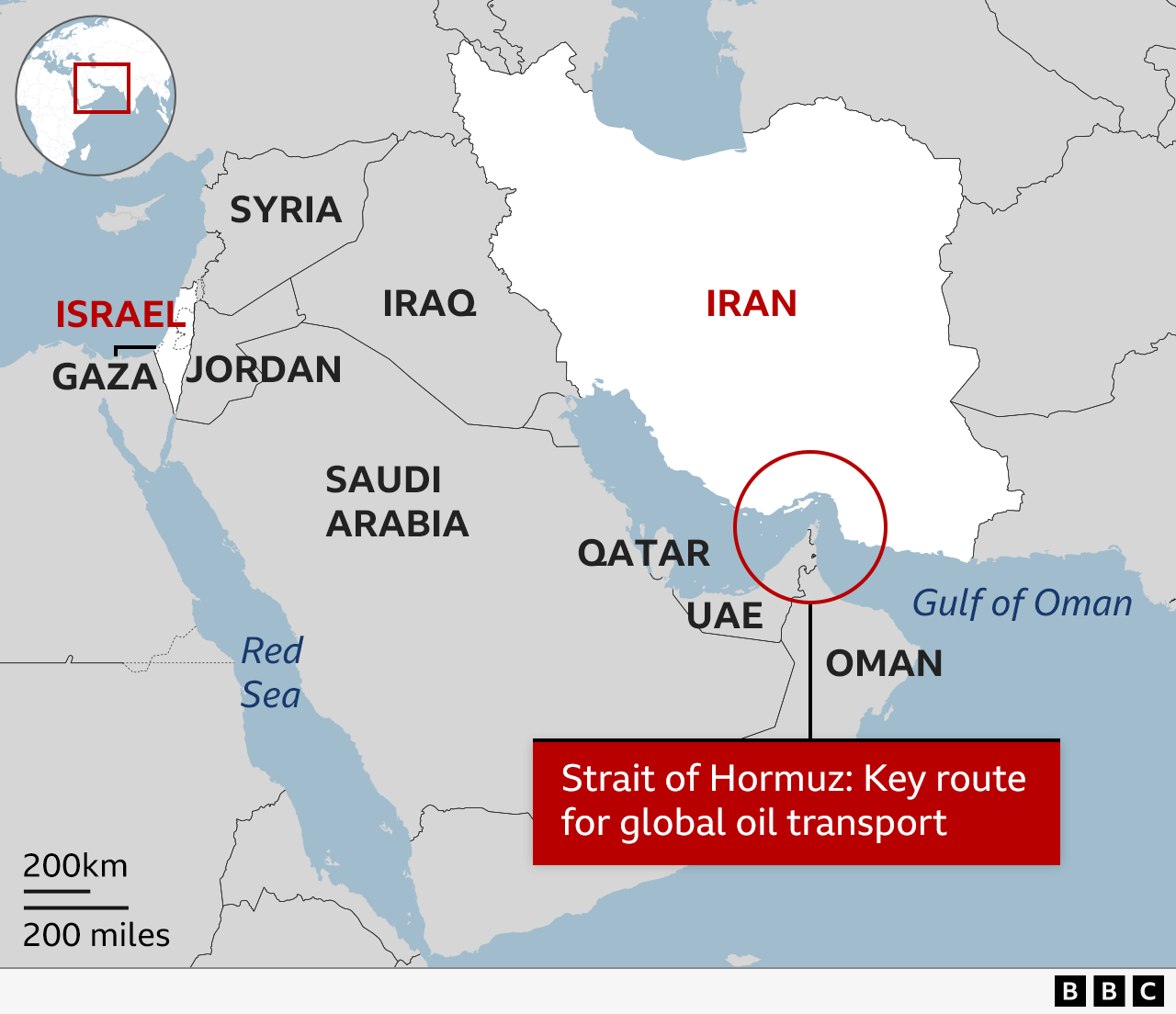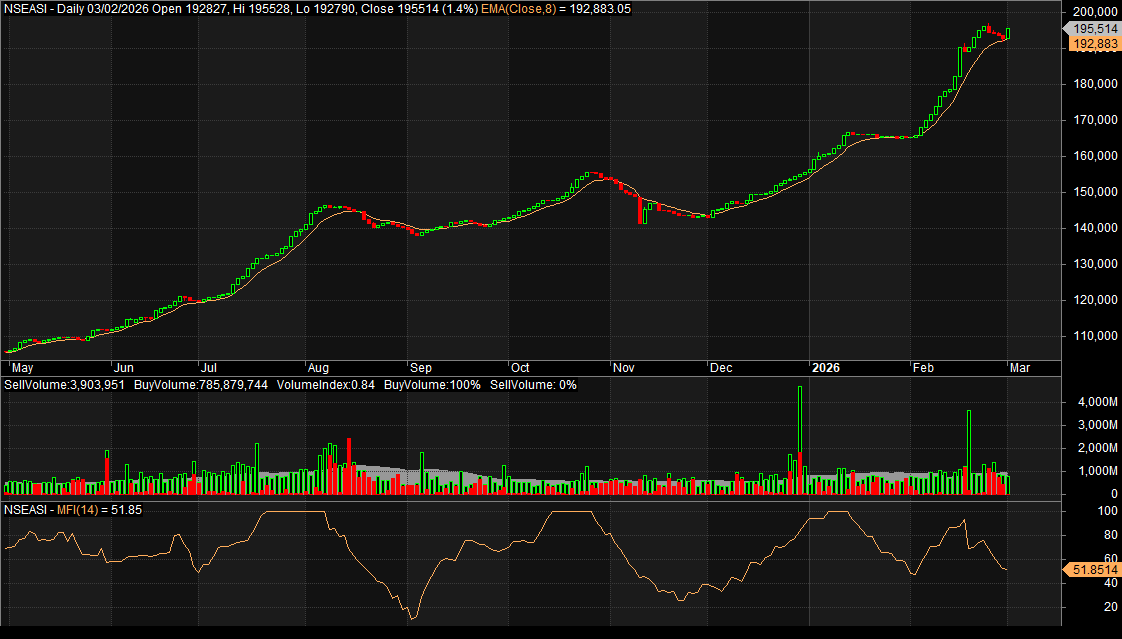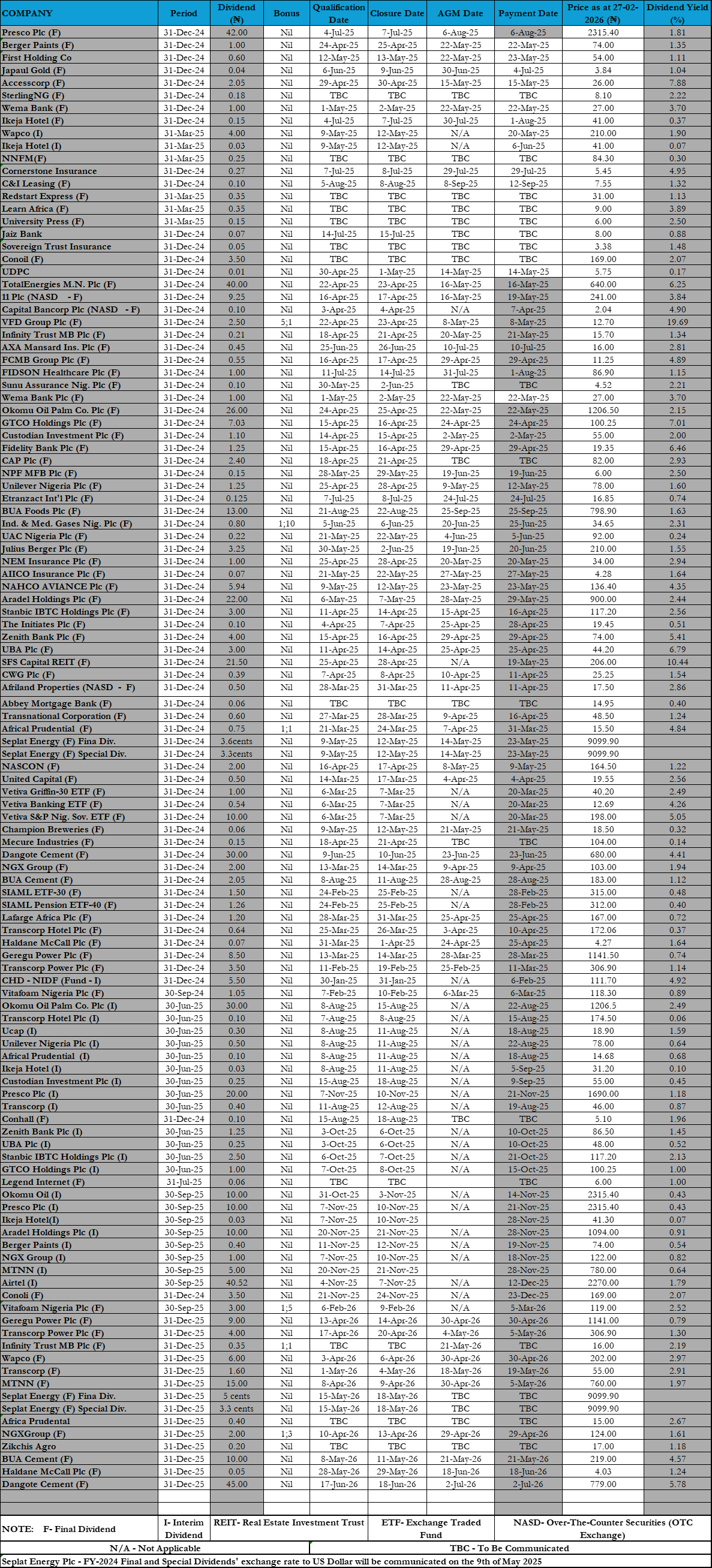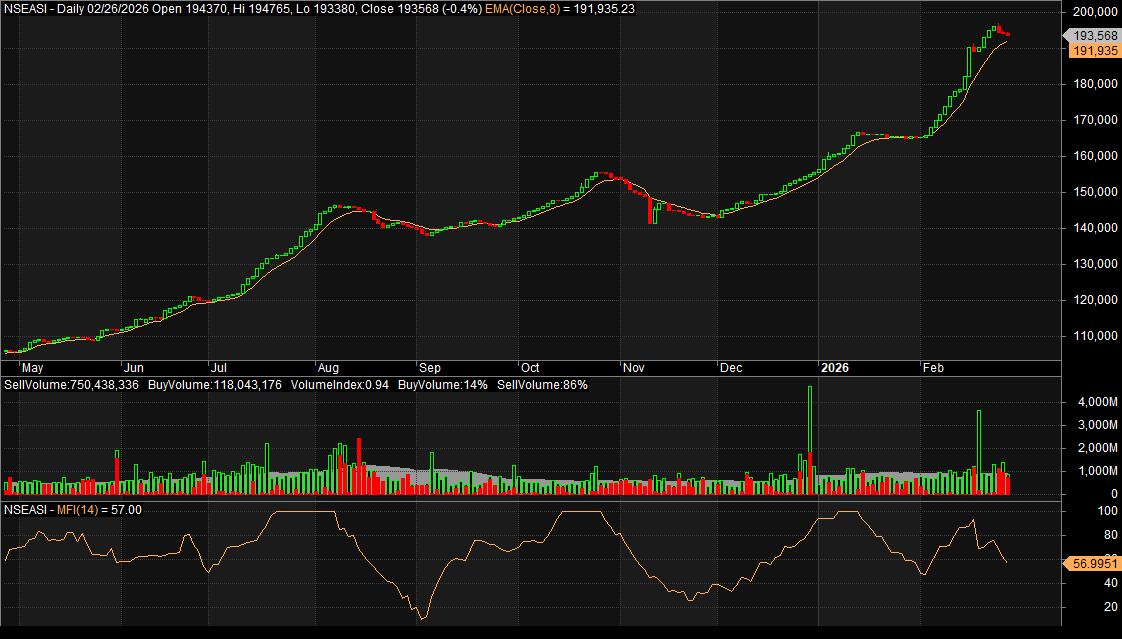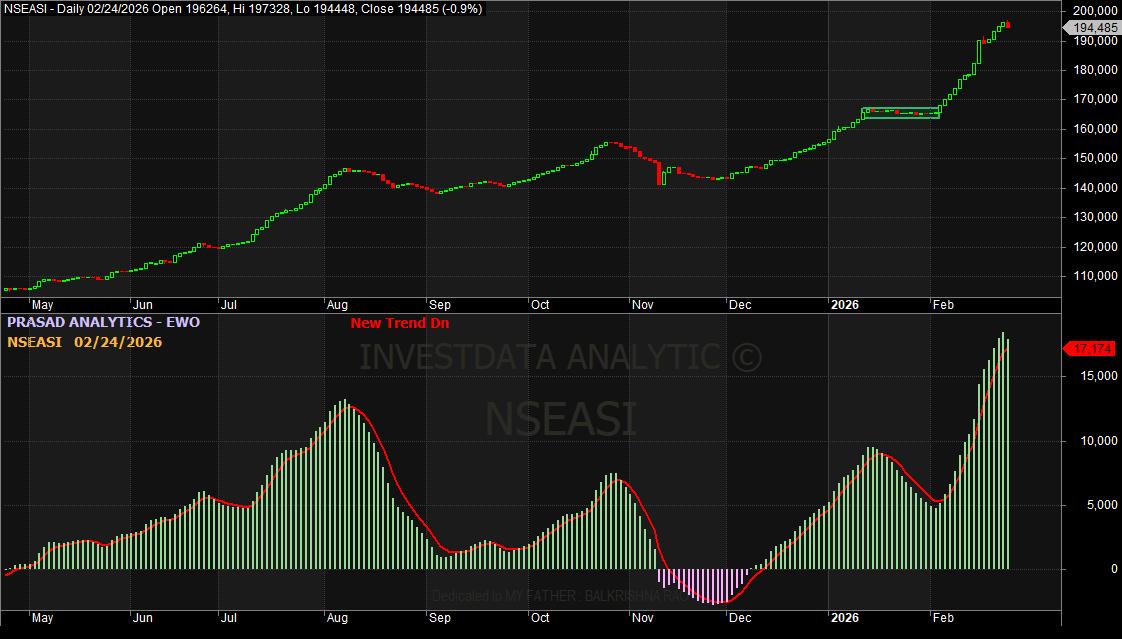
Market Update For November 20, 2025
The Nigerian equities market continued its bearish stretch for the fourth consecutive session, deepening the tone of caution that has defined trading sentiment in recent days. Thursday’s session was marked by renewed sell pressure across key sectors—particularly banking, insurance, consumer goods, and oil & gas—reflecting a market environment shaped by profit-taking, fragile risk appetite, and broader macro uncertainties.
Investors remained sensitive to shifting liquidity conditions and the absence of strong fundamental triggers, leading to selective repositioning rather than broad-based accumulation. The sustained downturn in several high-volume and bellwether stocks has kept the overall market direction subdued, as traders weighed short-term opportunities against the growing need to protect capital ahead of year-end portfolio adjustments.
Across the financial sector, banking tickers bore the heaviest impact. Names like WEMABANK, UBA, and ACCESSCORP continued to face mounting sell pressure, with traders locking in earlier gains as the sector experienced thinning volumes and a reduced flow of speculative interest. The insurance space was no different, as NEM’s notable decline dragged the sector lower, signalling weakening sentiment in a category that had recently shown bouts of resilience. The pullback across financial-related stocks highlights the caution with which investors are now approaching cyclical industries amid a fast-evolving macroeconomic landscape.
Activity levels also weakened significantly, pointing to softer conviction among market participants. Total volume and value traded saw sharp contractions, reinforcing the shift to a defensive posture. With liquidity gradually rotating to fixed-income securities due to rising yields and appealing risk-adjusted returns, equities have been left to grapple with reduced participation from both institutional and retail players. While this type of thinning can sometimes create attractive entry points for long-term investors, the market remains dominated by short-term volatility and cautious sentiment.
Sector performance was broadly negative. The Insurance index led the decline, reflecting aggressive selloffs in NEM and other counters affected by cycle-sensitive sentiment. The Banking index followed, weighed by persistent pressure on Tier-2 lenders. The Oil & Gas index also weakened, particularly due to the extended decline in OANDO, which continues to feel the impact of supply-side narratives and sector-specific risk factors. Consumer Goods and Industrial Goods indices also slipped, mirroring reduced demand for cyclical exposure. Only the Commodity index held flat, offering little in terms of stabilisation for the market.
In the global commodity landscape, crude oil prices staged a mild recovery after experiencing a sharp decline in the previous session. Brent crude climbed to $63.94 per barrel, while WTI advanced to $59.86, supported by a larger-than-expected drawdown in U.S. crude stockpiles. The market also took cues from a rally in global equities driven by Nvidia’s impressive earnings performance—a development that helped lift broader risk sentiment, albeit only temporarily. Nonetheless, concerns remain as the geopolitical environment evolves. Reports of a potential Russia–Ukraine truce framework continue to introduce volatility into crude markets, as any reduction in geopolitical tensions could accelerate the return of Russian supply to the global oil market. Meanwhile, U.S. sanctions on Rosneft and Lukoil are scheduled to take effect shortly, keeping traders on alert for changes in supply dynamics over the coming weeks.
Technical Analysis & Forward Outlook
The NGXASI remains firmly in bearish territory, trading below short-term moving averages, which confirms the persistence of downward momentum. The index’s declining trajectory reflects weakening demand, as evidenced by shrinking transaction volumes and flattening market breadth. Technical indicators show the RSI approaching oversold regions, suggesting the possibility of a technical rebound if bargain hunters return to take advantage of discounted valuations.
However, buyers remain largely cautious, seeking clearer macro signals and improved market-wide liquidity before taking meaningful positions. The extended period of selling may set the stage for intermittent recoveries, but the broader direction remains dependent on market catalysts such as upcoming corporate announcements, sector-specific developments, and shifts in fixed-income yields. For now, the outlook points to a mixed session with a downside bias, unless renewed demand emerges in heavyweight counters that can arrest the current slide.
Market Performance Summary
The NGX All-Share Index declined by 0.32%, closing at 144,187.03 points, with market capitalization shedding ₦291.9 billion to finish at ₦91.7 trillion. A total of 349.3 million units valued at ₦9.3 billion were traded. NCR (+10.00%) topped the gainers’ chart, while NEIMETH (-10.00%) and OMATEK (-10.00%) were the session’s worst performers.



